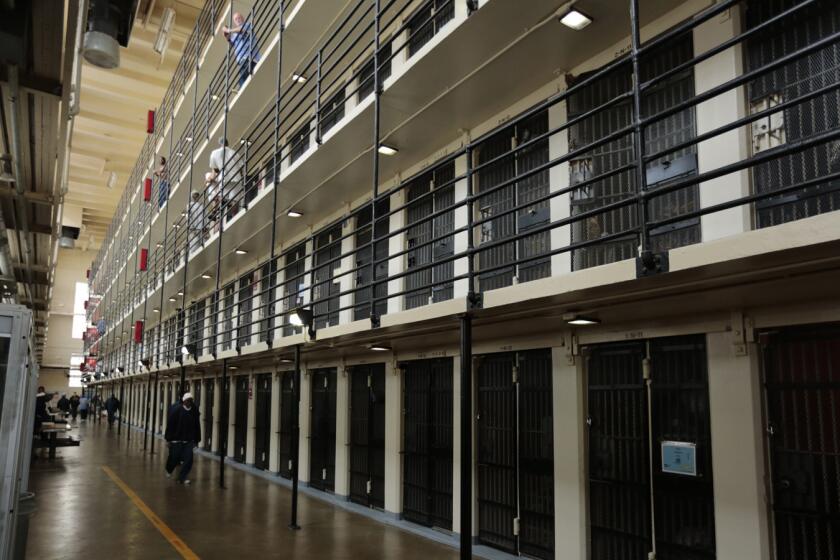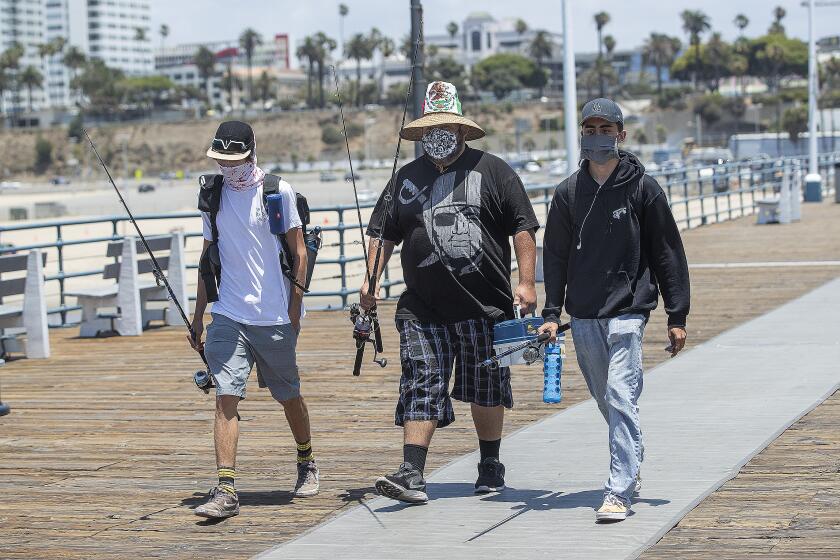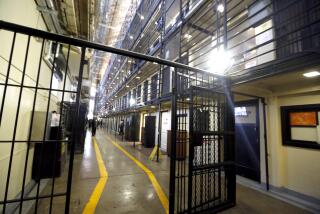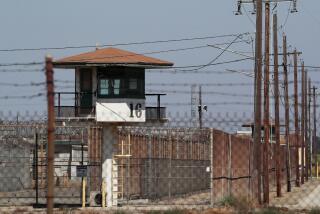San Quentin coronavirus outbreak spreads: 1,113 prisoners infected, death row inmate dies
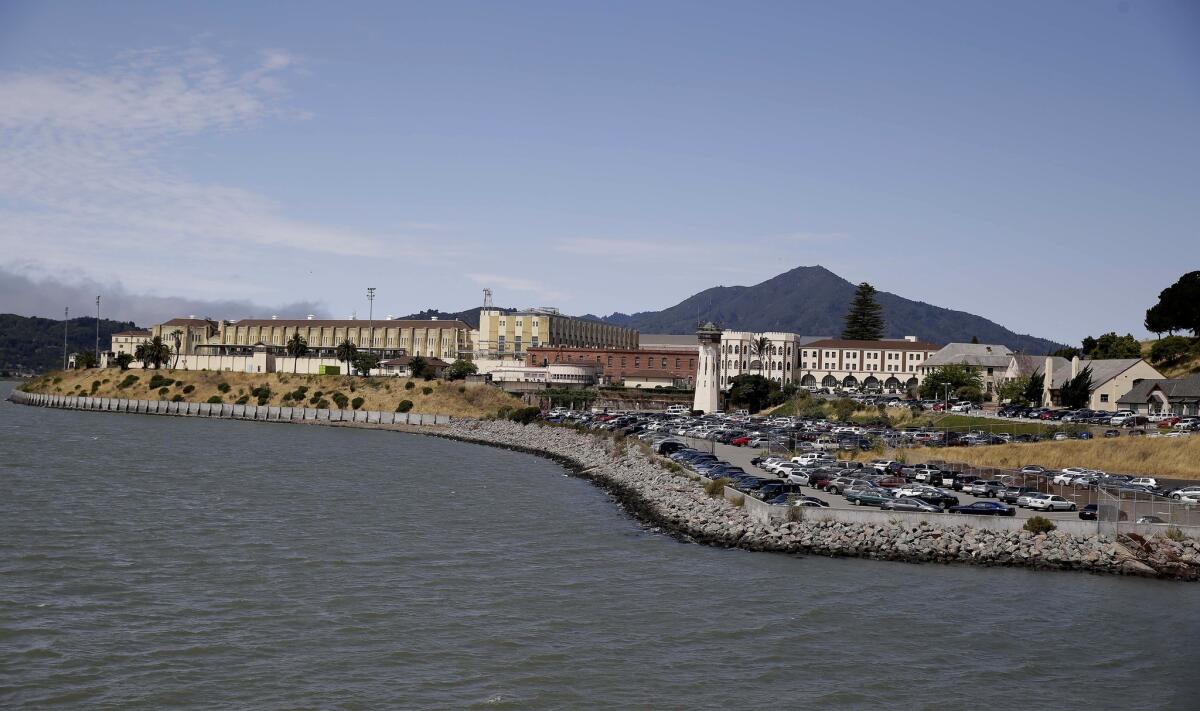
With about a third of San Quentin’s inmates now infected with the coronavirus after a transfer of prisoners from a Southern California correctional facility overrun by the illness, Marin County officials revealed Monday that a death row inmate found dead last week in his cell tested positive for COVID-19.
Richard Stitely’s death was the first in California’s oldest and most notorious prison, where 1,113 inmates and 102 correctional and medical staff have tested positive for the virus.
The Marin County prison has surpassed the California Institution for Men in Chino as the most infected prison in the state.
More than 500 inmates at the prison in Marin County have tested positive for COVID-19, many of them after transferring from the men’s prison in Chino, the site of a massive coronavirus outbreak.
Marin County’s hospitals have been inundated with intensive care patients from the prison, which houses about 3,500 inmates, including all of the men on California’s death row. On Monday, 22 inmates were being treated at the county’s hospitals, officials said.
In a letter sent Monday to the state, Marin County Board of Supervisors President Kate Rice requested the “establishment of on-site capacity to manage the care of inmates sickened with COVID-19 and the establishment of an Incident Commander at the facility with outbreak management expertise.”
Gov. Gavin Newsom said the state was coming up with a plan that included “using Seton Hospital, one of our alternative care facility sites” in Daly City to treat the inmates.
“San Quentin: So that is our deep area of focus and concern right now,” Newsom said.
The governor also said he is working to release an additional 3,500 inmates across the state’s prisons after a similar move made at the start of the coronavirus crisis.
“We are working with many advocates in the courts and others,” Newsom said, noting that the California Department of Corrections and Rehabilitation is “looking at medical conditions of our prisoners, those that are most vulnerable.“
He said the state wants to ensure that all inmates have places to go before they are released.
Unlike other prisons in California, San Quentin had escaped any coronavirus outbreak until early June. But 121 inmates were moved there from the Chino prison on May 30.
The California Institution for Men, an early hotbed of coronavirus cases in the state’s prison system, has reported the deaths of 16 inmates. Statewide, 22 inmates have died of virus-related illnesses and more than 4,800 have tested positive.
Inmates in Chino who did not test positive and are medically vulnerable were transferred to other prisons, including San Quentin and Corcoran. The transfers ignited outbreaks at both prisons, with a federal judge calling the moves a significant failure.
Stitely had been on death row at San Quentin for nearly three decades since being sentenced for the 1990 rape and murder of Carol Unger, 47, who was last seen leaving a Reseda bar with him.
He was one of 725 death row inmates housed at the Bay Area prison. Of those, nearly 200 have tested positive for the coronavirus.
Stitely’s official cause of death is still pending additional investigation, according to Marin County sheriff-coroner’s officials.
Newsom on Monday acknowledged the role the transfers have played in the San Quentin outbreak.
“It looks and appears to be the case. Again, we’re still getting through the complete investigation, so I want to have that as a caveat of consideration before people run with it,” the governor.
A similar transfer of inmates from San Quentin to a prison in Kern County was delayed last week after some prisoners tested positive. Before the May 30 transfer from the California Institution for Men in Chino, the California Department of Corrections and Rehabilitation had stopped the movement of all inmates for months, limiting most outbreaks to a few of its 35 prisons.
Officials express alarm over people flouting safety rules as the state records its highest number of new coronavirus cases reported in a single day.
As of Monday, 2,526 inmates at San Quentin had been tested for the coronavirus, according to Department of Corrections and Rehabilitation data. About two-fifths of inmates are deemed vulnerable, according to state officials.
“We are closely monitoring and quickly responding to positive cases of COVID-19 in state prisons, including at San Quentin,” corrections spokeswoman Dana Simas said in a statement. “Additionally, we are working jointly with the court-appointed Federal Receiver on housing and treatment, as well as public health agencies and stakeholders for the safety and security of our inmates, staff and communities.”
Prison officials Monday set up tents in the exterior yards as part of an effort to socially distance some of the inmates. A similar move was made at the California Institution for Men in May.
More to Read
Start your day right
Sign up for Essential California for news, features and recommendations from the L.A. Times and beyond in your inbox six days a week.
You may occasionally receive promotional content from the Los Angeles Times.
